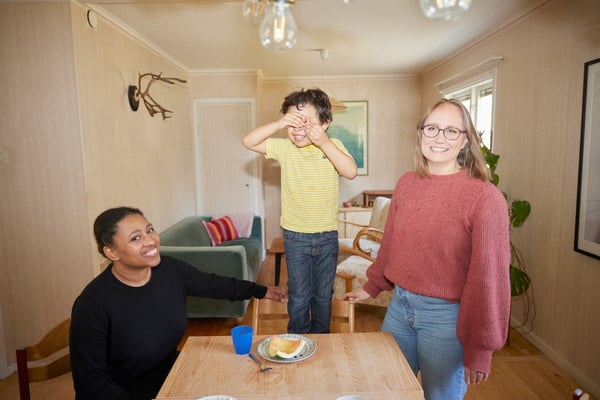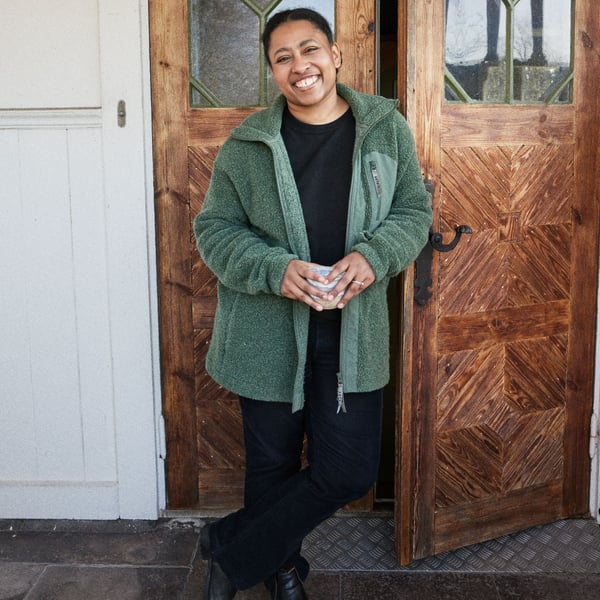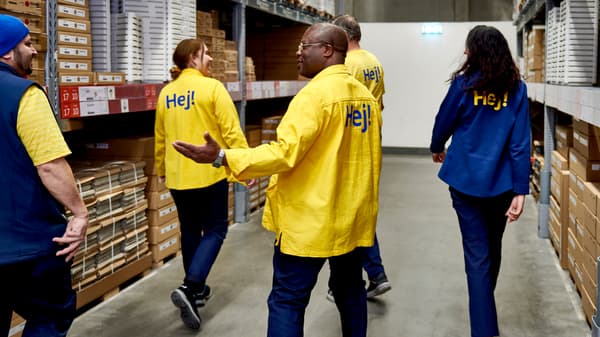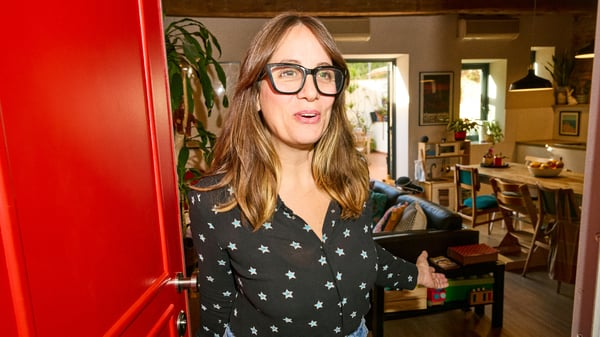Justice and inclusion matter

“We want to live a life where we have fun, where we can be proud, where we can be out.”
Alle (she/they/them)
Alle lives on a remote island in Sweden. People often ask, oh is that the island with the bridge? She shares her home with her wife, Cici, and their son. The three moved to this big farmhouse after moving from their small 44m2 apartment in the city. Their son is free to roam, pretend to be a superhero one minute or climb trees the next. However, Alle was born in Columbia in South America but moved to Sweden at the age of two, adopted by two Swedish parents. She grew up in a rural part of Sweden and as a black child felt like she was different. Then when she turned 13 or 14, she realised “Uh oh. I’m also lesbian”. Alle was even more determined to move to Stockholm as soon as she could.
Coming out
From about the time she was 14, Alle had a girlfriend. In fact, getting girlfriends was never a problem. But she still needed to tell her parents. For multiple reasons, she had anxiety about telling them. But she did. Ultimately, they came to accept it, but it wasn’t initially easy. A film came out around the time she was coming out, titled ‘Show Me Love’. It made a huge impact and gave her a sense of freedom and understanding. Struggling with her sexuality was never an issue for her because she always knew. She lost some friends along the way. And though her parents were great about accepting her as a lesbian, she still couldn’t wait to run to Stockholm the first chance she could.
Love story
Alle and Cici were working together at a university. They had been dating secretly and came to the point where they told their boss. Happily, there were no issues with it. However, Alle being very pragmatic, casually suggested that they get married. After all, it would be good for tax purposes. But Cici said oh no. Any marriage proposal better be the right way with maybe a flash mob. And so that’s exactly what Cici got—a flash mob of people from her choir. They showed up at work and created an absolutely unforgettable proposal.
Challenges and hate
Alle has worked with the topic of LGBT+ for a lot of years. She had her own bookstore which was basically intersectional and also had her own publishing company which had intersectionality. She was also a part of starting up a youth space for LGBT+ youth in a targeted area in Stockholm. Justice and inclusion really matter to her. Alle feels that the gay, lesbian and trans community is currently under a lot of threats from politics. So, it’s important to keep showing diverse families for people to take it seriously. “Being lesbian is a part of who I am,” she says. But bigger than that, having representation is important for the sake of the wider community and the world. People need to feel safe holding hands on the street or doing the grocery shop. Before moving to the somewhat-isolated island they chose, Alle and Cici made sure there was an LGBT+ community in existence where they could feel safe.
Love at home
Love at home is a feeling of warmth to Alle and Cici. It’s a place that feels safe and fun. To them, it’s not just the physical bounds of home. It’s the community of people close to you. They feel that their community of friends and neighbours is also a feeling of home.

We asked Alle...
What would you tell a young person anxious about coming out?
Find your community.
How can anyone support the LGBT+ community?
Listen. Read. Learn. And share their stories.
LGBT+ inclusion
Home can be the base for nurturing self-confidence, happiness and belonging—especially for people in the LGBT+ community. When acceptance and inclusion create equal opportunities for all sexualities and identities, we’re better together.





